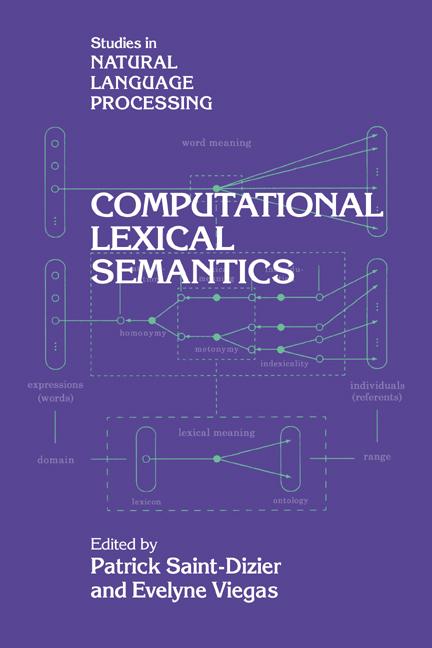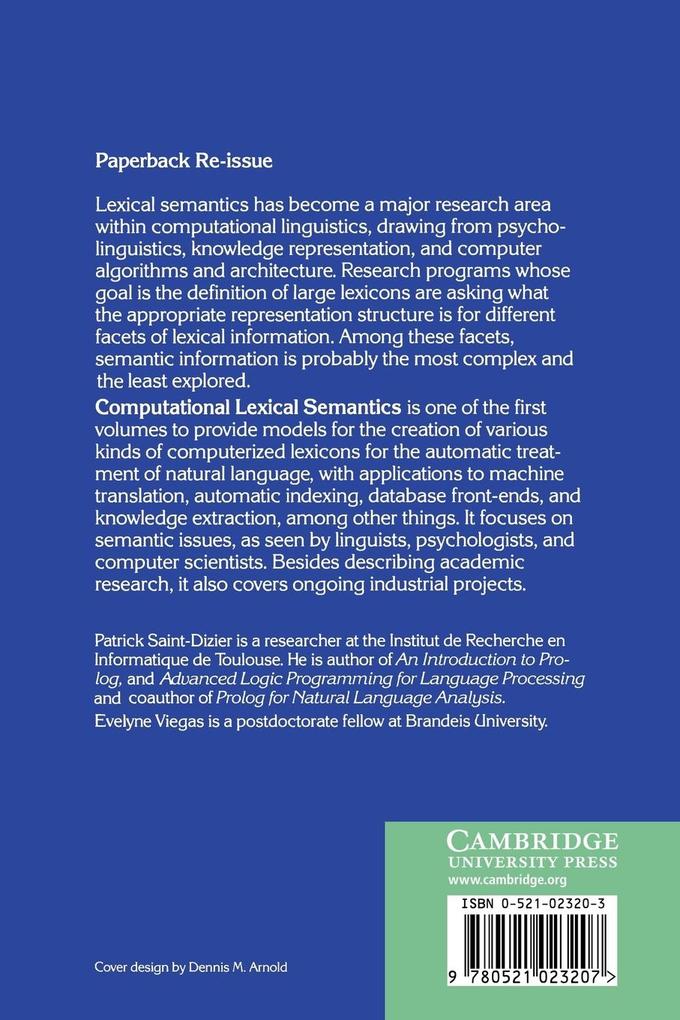Computational Lexical Semantics is one of the first volumes to provide models for the creation of various kinds of computerized lexicons.
Inhaltsverzeichnis
An introduction to lexical semantics from a linguistic and a psycho-linguistics perspective Patrick Saint-Dizier and Evelyn Viegas; 1. Polysemy and related phenomena from a cognitive linguistic viewpoint Alan Cruse; 2. Mental lexicon and machine lexicon: which properties are shared by machine and mental word representations? Which are not? Jean Francois Le Ny; 3. Linguistic constraints on coercion James Pustejovsky; 4. From lexical semantics to text analysis Sabine Bergler; 5. Lexical functions, generative lexicons and the world Dirk Heylen; 6. Semantic feature in generic lexicon Gabriel Bes and Alain Lecomte; 7. Lexical semantics and terminological knowledge representation Gerritt Burkert; 8. Word meaning between lexical and conceptual structure Peter Gerstl; 9. The representation of group denoting nouns in a lexical knowledge base Ann Copestake; 10. A preliminary lexical and conceptual analysis of BREAK: a computational perspective Martha Palmer and Alain Polguere; 11. Large neural networks for the resolution of lexical ambiguity Jean Veronis and Nancy Ide; 12. Blocking Ted Briscoe, Ann Copestake and Alex Lascarides; 13. A non-monotonic approach to lexical semantics Daniel Kayser and Hocine Abir; 14. Inheriting polysemy Adam Kilgarriff; 15. Lexical semantics: dictionary or encyclopedia? Pierre Zweigenbaum and Marc Cavazza; 16. Lexical functions of explanatory combinatorial dictionary for lexicalization in text generation Guy Lapalme, Margarita Alonso and Agnes Tutin; 17. A lexical-semantic solution to the divergence problem in machine translation Bonnie Dorr; 18. Introducing LexLog Jacques Jayez; 19. Constraint propagation techniques for lexical semantics descriptions Patrick Saint-Dizier.













